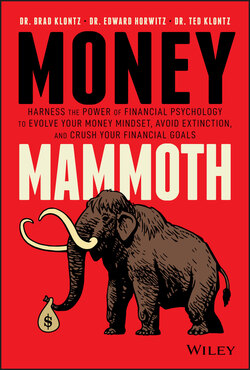Читать книгу Money Mammoth - Ted Klontz - Страница 36
THE 2008 HOUSING CRISIS
ОглавлениеAn example of a recent shared financial flashpoint was how many parents struggled to make ends meet in the wake of the 2008 housing crisis. Many parents probably exposed their children to new beliefs about banks, the stock market, and home ownership. In fact, studies have shown that Millennials are less likely to desire or seek home ownership and are less trustful of the stock market compared to previous generations.2 The reasons given were not student debt levels, as some would have thought, but rather a belief that home ownership was not a reliable way to build wealth. However, for the previous two generations, equity built through home ownership was a major source of wealth creation. At the time of this book's writing, home ownership is at or near all-time high, and property values in most markets have recovered to near pre-2008 levels or higher. Additionally, all three major stock market indexes are at or near record high levels and more than recovered from pre-2008 levels.
The lesson here is that you must accept the fact that your parents may not know best when it comes to money management and money relationships. Don't be too hard on them; they were only doing what they had learned. Some of you have already recognized that fact as you got older. Are you able to recognize your parents' money beliefs and behaviors that you share?
As parents, many of us struggle with how much we should expose to our children. On one hand, we want them to respect a hard day's work and the value of a well-earned dollar. On the other hand, we don't want them to worry about money and spoil their childhood innocence. However, good money lessons are important to learn and establish. Kids are bombarded through social media and living in a highly materialistic society to consume and assimilate into society. Debt is advertised on TV and everything seems to be connected to money. Wealth, success, fame, and celebrity are front and center in our culture, and our kids see it everywhere. Parents have a near impossible task to educate their kids about money and good financial savings habits versus societal and peer pressures. What makes it even harder is most parents don't have it all figured out either. The advice you received may have been flawed or inaccurate. It's okay to still love your parents and ignore their money and money relationship advice. Sometimes you need to be okay with that idea for you to move ahead and rewrite those incorrect beliefs.
In the next chapter, we explore in greater detail how to help children develop a healthy money mindset. Remember, nobody is born knowing and understanding everything they need to know about money and proper financial management. Healthy money mindsets must be learned. If the money mindsets handed down from your parents need some correcting, it's time to fix them for your children.
